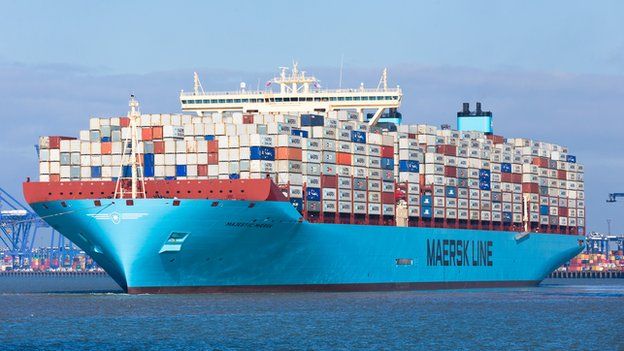 |
| This is your culprit right here |
The first question, as always, needs to be about root causes. The conventional wisdom is that trade globalization agreements created trade globalization, by changing the rules and opening up low-cost manufacturing centers in poor countries. But is that the case? Once you think about it, it's actually the other way around - trade globalization led to the free trade agreements. In other words, the agreements were negotiated to address the changes that were already happening in global trade. But if that's the case, what caused the globalization of trade in the first place? The answer is the standardized inter-modal shipping container. Once you had a very cost effective way of transporting goods on ships, trains and trucks, there was no place on earth that wasn't available as a manufacturing hub. And once that infrastructure was in place, every corporation in the world was able to either create or participate in highly efficient large-scale global supply chains.
A second point to remember is that these are agreements between multiple parties. They are not supposed to be one-sided zero sum contests in power and advantage. America lost a lot of manufacturing jobs, but as the largest consumer market in the world we benefited hugely from the increased speed and efficiency of the global supply chain. We have our phones and tablets and laptops and televisions, sure, but we also have the tens of millions of servers, routers, switches, firewalls, load balancers, along with the millions of miles of optical network infrastructure what permits you to watch Netflix. Would any of that be affordable to all if it had to be manufactured here? Would the advances in technology have been deployed as rapidly? And along that same context, think about the millions of people around the globe who have been lifted out of the grinding poverty of subsistence farming, who now have houses with plumbing and health care and education for their children. For every $75/hr American manufacturing job that has been lost, a hundred desperately poor families have joined the modern middle class. All in the course of a single human lifespan. That is an unqualified good thing.
In the end, if you're an American worker these trade deals have not been a good deal. They have cost good jobs and empowered the worst instincts of corporations. But they are not the catastrophe they are often made out to be - rather they are the cudgel that populist politicians can use to drive hostility toward the parties in power. And if you look at the results of trade globalization over the last few decades from a global rather than an American nationalist viewpoint, they have done an awfully lot of good.
One final point to consider: manufacturing jobs will return to the US. That's not good news, however. Robotics and workforce automation have changed the capital/labor calculation. When all the costs of manufacturing are capital and none are labor, you can establish your manufacturing hubs anywhere you want - the only advantage is proximity to markets, and the US is still the largest consumer market on the planet. The jobs will return - they are returning - but workers will not benefit. Sooner than you think, the lions share of manufacturing will be automated, and both the advanced and the emerging economies will be confronted by huge numbers of desperately poor, unemployable people demanding solutions. At that point we'll look back on the days of trade globalization as a golden age.
UPDATE:
And, just like that, Yglesias makes the final point crystal clear...

No comments:
Post a Comment